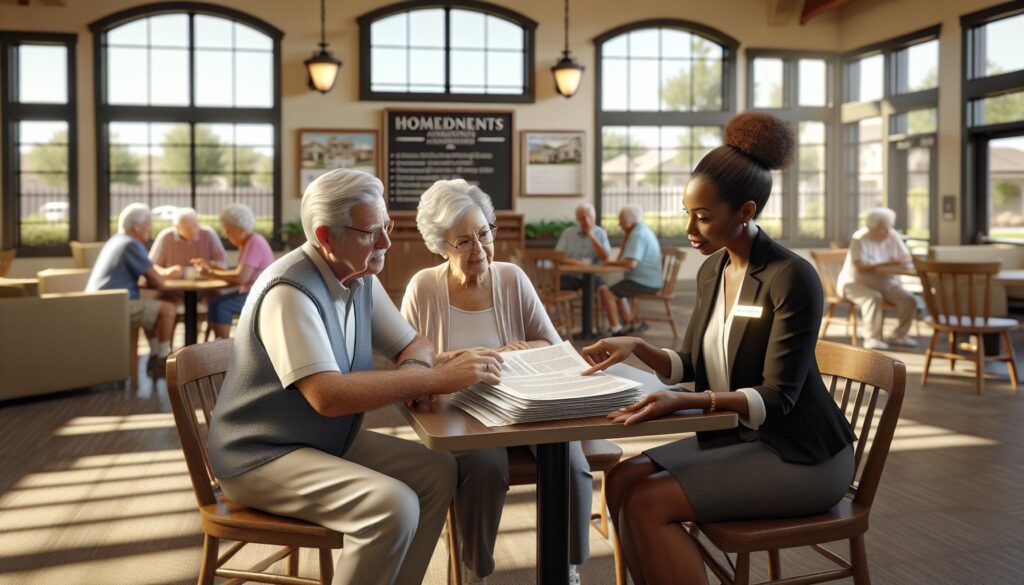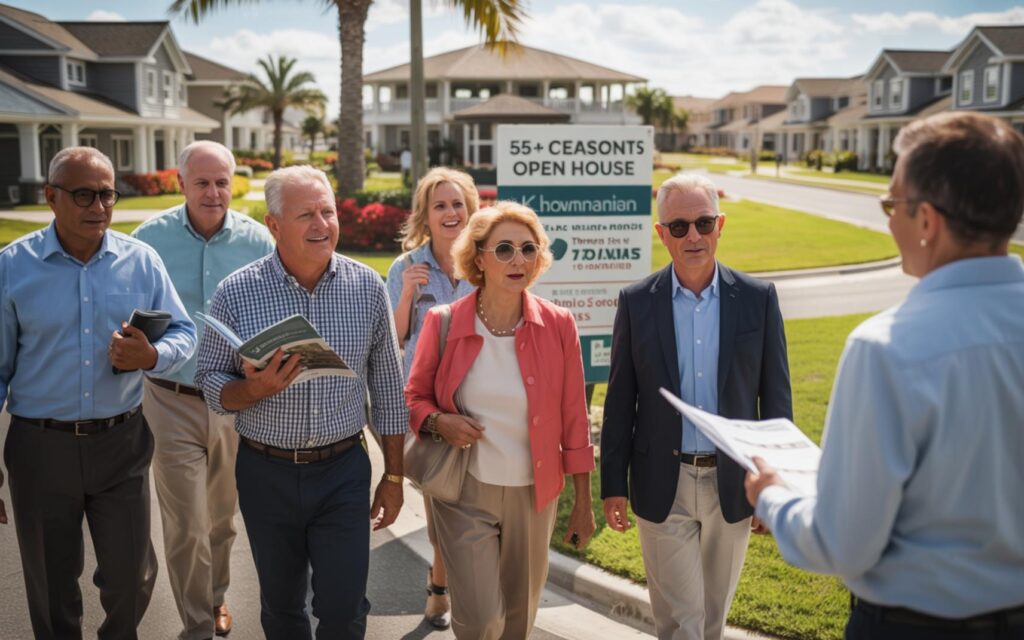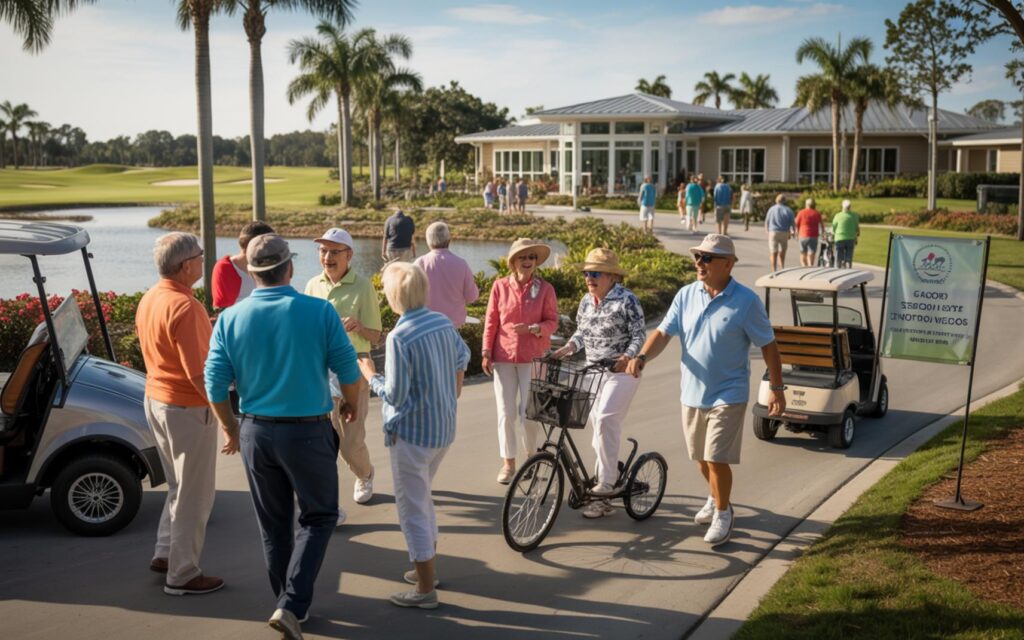Understanding HOA rules for 55+ communities is crucial for seniors considering buying a home in a retirement community. These guidelines impact daily life, home maintenance, and community interactions, making it essential for prospective homeowners to be fully informed.
What Are HOA Rules in 55+ Communities?
Homeowners Associations (HOAs) in active adult communities establish specific rules designed to maintain property values, ensure community harmony, and provide amenities tailored to senior living. These rules typically cover home exterior standards, landscaping, pet policies, and usage of shared facilities. For a broader understanding of how HOAs operate, the U.S. Government’s official site provides valuable insights into regulations and community governance.
Common HOA Rules Seniors Should Expect
- Age Restrictions: Typically, at least one resident must be aged 55 or older, with additional age-related occupancy rules.
- Property Maintenance: Guidelines on lawn care, exterior paint colors, and home upkeep.
- Vehicle and Parking Restrictions: Limits on parking spaces, types of vehicles allowed, and rules regarding RVs or boats.
- Pet Policies: Restrictions on pet size, breed, and the number of pets per household.
- Facility Usage: Regulations regarding community pools, clubhouses, fitness centers, and event participation.
Why HOA Rules Matter for Seniors Buying Homes
HOA rules significantly influence daily life in retirement communities. Understanding these regulations helps seniors avoid potential conflicts, fines, or unexpected responsibilities after moving in.
Financial Implications of HOA Rules
HOA fees are mandatory and cover community maintenance, amenities, and services. Seniors should carefully review fee structures, potential increases, and special assessments to ensure affordability in retirement. To better understand these costs, seniors can explore this detailed guide on HOA fees coverage and costs explained.
Impact on Lifestyle and Social Activities
HOA guidelines often dictate social activities, events, and community engagement opportunities. Prospective homebuyers should evaluate whether these rules align with their desired lifestyle and social preferences.
Tips for Reviewing HOA Rules Before Buying
To ensure compatibility with the community’s regulations, seniors should thoroughly review HOA documentation before finalizing their home purchase.
- Request HOA Documents: Obtain and carefully read the Covenants, Conditions, and Restrictions (CC&Rs), bylaws, and financial statements.
- Attend HOA Meetings: Participate in community meetings to gain insight into how rules are enforced and community issues are addressed.
- Ask Questions: Clarify any uncertainties with the HOA board or current residents to fully understand expectations and community dynamics.
- Consider Legal Advice: Consult with a real estate attorney specializing in retirement communities to ensure clarity and compliance with HOA regulations.
Challenges Seniors May Face with HOA Rules
While HOA rules are designed to enhance community living, some seniors may find certain restrictions challenging.
Limited Personalization Options
Strict guidelines on home exteriors and landscaping may limit personal expression. Seniors who value customization should consider communities with more flexible rules. For more insights into these regulations, seniors can review this comprehensive article on Florida 55+ community HOA rules and regulations.
Potential for Conflict
Misunderstandings or disagreements over HOA rules can lead to conflicts. Clear communication and thorough understanding of guidelines help minimize such issues.
Benefits of HOA Rules in Retirement Communities
Despite potential challenges, HOA rules offer significant advantages for seniors seeking structured, hassle-free living.
- Property Value Protection: Consistent maintenance standards help preserve home values.
- Community Harmony: Established guidelines promote peaceful coexistence and reduce disputes.
- Access to Amenities: HOA fees typically cover amenities like pools, fitness centers, and social events, enhancing quality of life.
- Reduced Maintenance Burden: Many HOAs handle landscaping, exterior maintenance, and common area upkeep, easing homeowner responsibilities.
Frequently Asked Questions About HOA Rules for 55+ Communities
What is an HOA in a retirement community?
An HOA, or Homeowners Association, is a group that sets rules and manages common areas in retirement communities. They collect fees, maintain amenities, and enforce community guidelines.
How much are typical HOA fees in 55+ communities?
HOA fees vary widely, typically ranging from $100 to $500 per month. Fees depend on amenities, location, and services provided by the community.
Are pets allowed in active adult communities with HOAs?
Many retirement communities allow pets but have specific rules on size, breed, and number. It’s important to review pet policies carefully before buying a home.
Can you opt out of HOA membership in a 55+ community?
No, membership in an HOA is usually mandatory in retirement communities. Homebuyers must agree to HOA rules and fees as part of their purchase agreement.
Where are HOA rules found when buying a home in PSL?
HOA rules are detailed in documents called Covenants, Conditions, and Restrictions (CC&Rs). Buyers should request these documents from the HOA or seller before finalizing their home purchase. Additional information on housing regulations and community living can be found on Port St. Lucie 55+ communities insider guide, which provides resources for homebuyers and community guidelines.
Ready to learn more about HOA rules for 55+ communities? Download our FREE guide.






